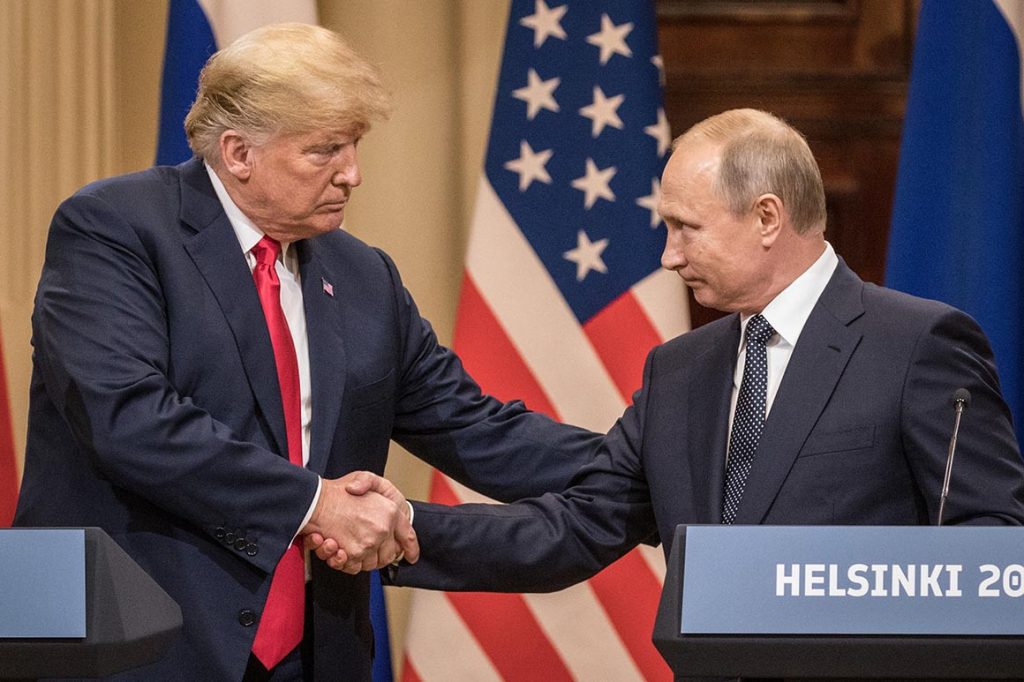Amid the tensions between the USSR and the United States of America during the cold war, the North Atlantic Treaty Organization or NATO, was formed. This pact between the North American countries and some countries in the Western Europe, treating an armed attack against either member as an armed attack towards all (members) and their subsequent policy of mutual defense, was formalized by the U.S. President Harry S. Truman in Washington on 4 April 1949. The Warsaw Pact was created by the Soviet allies in 1955 in response to this. A little bit of a history lesson for those who might be unaware, once the USSR disintegrated all its existing treaties, relationships, etc. were inherited by its biggest nation – Russia.
The relationship between Russia and USA has always been tricky, for a lack of a better word.

Since its inception in 1949, NATO has held several meetings or summits for the Heads of State and Heads of Government to strategize various Alliance activities. With its latest summit just around the corner, anticipation in the minds of the countries is maximum. The summit is scheduled to take place on 11 July 2018 and 12 July 2018 in Brussels, Belgium and will be chaired by the NATO Secretary General – Jens Stoltenberg. Reportedly, the main agenda for this Summit is enlargement of the organization.
Trump has pressured the NATO allies to increase their military expenditure to at least 2% of their annual GDP. He also sent sharp worded letters to Germany’s Chancellor – Angela Merkel and other leaders that many have viewed as threats and a breach of diplomacy. Trump is not the first U.S. President to speak out against the unfairness of U.S.A. bearing a greater amount of military expenditure for the sake of other NATO countries, former Presidents such as Barrack Obama and George Bush too have shared their strong views on the matter albeit in a more diplomatic way.
Although, the concerns of the American President are justified, his ways of dealing with it may backfire. It’s no surprise that the President is not popular in Europe, especially Germany. If his current antics continue, it could create difficulties for the Heads of State when they have to plead the legislatures to grant a greater portion of the budget for military and defense enhancement.
The irony of Trump’s incessant commitment is scathing in the eyes of other member countries especially in the light of his relationship with the Russian President – Vladimir Putin. It raises a cause of concern because Russia’s entire foreign policy revolves around undermining the West.
Trump is scheduled to meet with the Russian President on 16th of this month in Helsinki. His growing fondness for Putin, hinted by the latter being addressed as a confidant by the former, has become an immediate concern for the Alliance ahead of the summit.

Pulling out of international accords such as the Paris Climate Treaty, Trans-Pacific Partnership and the Iran Nuclear Deal depicts a bizarre trend of ignorance towards ties with traditional allies.
One can extrapolate a pattern of Trump’s willingness to prioritize talks with authoritarians at the cost of United States’ strong diplomatic relations with the West. This was observed as he rushed through the G7 summit to meet Kim Jong Un in Singapore.
NATO’s disquiet on talks between their biggest defense contributor and their biggest geopolitical opponent can be justified as it comes at a time when Russia is increasing its presence in the Baltic and the Black Sea through military exercises and recent cyber-attacks. The Alliance’s greatest fear is a situation quite similar to the terms of the Washington-Pyongyang rendezvous where Trump announced the suspension of military exercises with South Korea. If the United States withdraws some of its troops from Europe, cuts spending in the area or suspends exercises with them on account of a deal with Russia, it could amplify tensions.
The principal agenda for the meeting in Helsinki is believed to be a discussion on the extension of the START nuclear treaty, which stands for Strategic Arms Reduction Treaty. It was signed between USA and Russia limiting their nuclear arsenal while allowing occasional inspections into each other’s defense systems. The treaty can prove to be advantageous to both nations, as there seems to be an evident arms race in effect. As reported last June, Russia possessed 300 nuclear warheads in excess of the United States. This could be a crucial reason behind Trump’s demand for increased European spending on NATO’s military.
John Dowdy, senior partner at McKinsey & Company London, points out an irony behind Trump’s demand for augmented spending by the West. The Alliance at present is in a situation where massive logistical and bureaucratic infrastructure supports few deploy-able troops. Trump’s failure to analyze the gravity of the state of affairs better could prove critical to NATO’s stability

Prachi Sharma
AlumnaDuring her time at the Finance and Investment Cell, Prachi served as Editor-in-Chief. She undertook several projects, the most notable of which was producing an annual newsletter for Divide.

Pranav Verma
AlumnusPranav was one of the most exceptional Vice Presidents the Finance and Investment Cell has ever seen. His commitment to his work and ability to garner knowledge with utmost patience set him apart.

